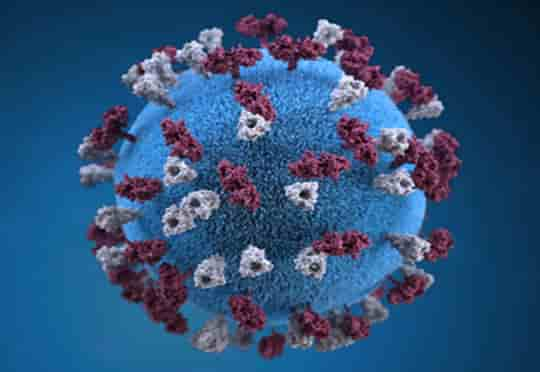Mouthwash could inactivate the coronavirus in the throat and minimise transmission.
Experts think that a 30-second regular rinsing with mouthwash could inactivate the coronavirus in the throat and minimise transmission and prevent infection, research finds.
Chemicals such as ethanol, cetylpyridinium, and povidone-iodine commonly found in dental mouthwashes can destroy the outer shell of fat of many enveloped viruses.
Coronaviruses are enveloped viruses, like influenza and HIV.
Therefore, a group of scientists in a review ask for an urgent clinical trial to test if the readily available mouthwashes can be effective in combating the COVID-19 virus.
Professor Valerie O’Donnell, the study’s first author, said:
“Safe use of mouthwash – as in gargling – has so far not been considered by public health bodies in the UK.
In test tube experiments and limited clinical studies, some mouthwashes contain enough of known virucidal ingredients to effectively target lipids in similar enveloped viruses.
What we don’t know yet is whether existing mouthwashes are active against the lipid membrane of SARS-CoV-2.
Our review of the literature suggests that research is needed as a matter of urgency to determine its potential for use against this new virus.
This is an under-researched area of major clinical need – and we hope that research projects will be quickly mobilised to further evaluate this.”
SARS-CoV-2 is an enveloped virus covered with lipids (fat) and common mouthwashes in general contain active ingredients like cetylpyridinium chloride to kill microorganisms.
Hence, regular oral rinsing with a dental mouthwash for 30 seconds and then spitting seem to be a good hygiene practice.
This is in line with other recommendations such as hand washing, using face covering, and social distancing rules to protect people from coronavirus.
Despite this, the World Health Organization (WHO) has debunked the idea that mouthwash can help prevent the COVID-19 infection.
A WHO spokesman said:
“There is no evidence that using mouthwash will protect you from infection with the new coronavirus.”
Some brands of mouthwash can eliminate certain microbes for a few minutes in the saliva in your mouth.
However, this does not mean they protect you from 2019-nCoV infection.”
It seems premature to reject the theoretical evidence on oral rinsing as a potential way to help lower transmission of SARS-CoV-2.
Professor O’Donnell also added:
“Mouthwash has not been tested against this new coronavirus yet.
People should continue to follow the preventive measures issued by the UK government, including washing hands frequently and maintaining social distance.
This study suggests further clinical studies could be worthwhile based on the theoretical evidence.”
The study was published in the Journal of Function (O’Donnell et al., 2020).

